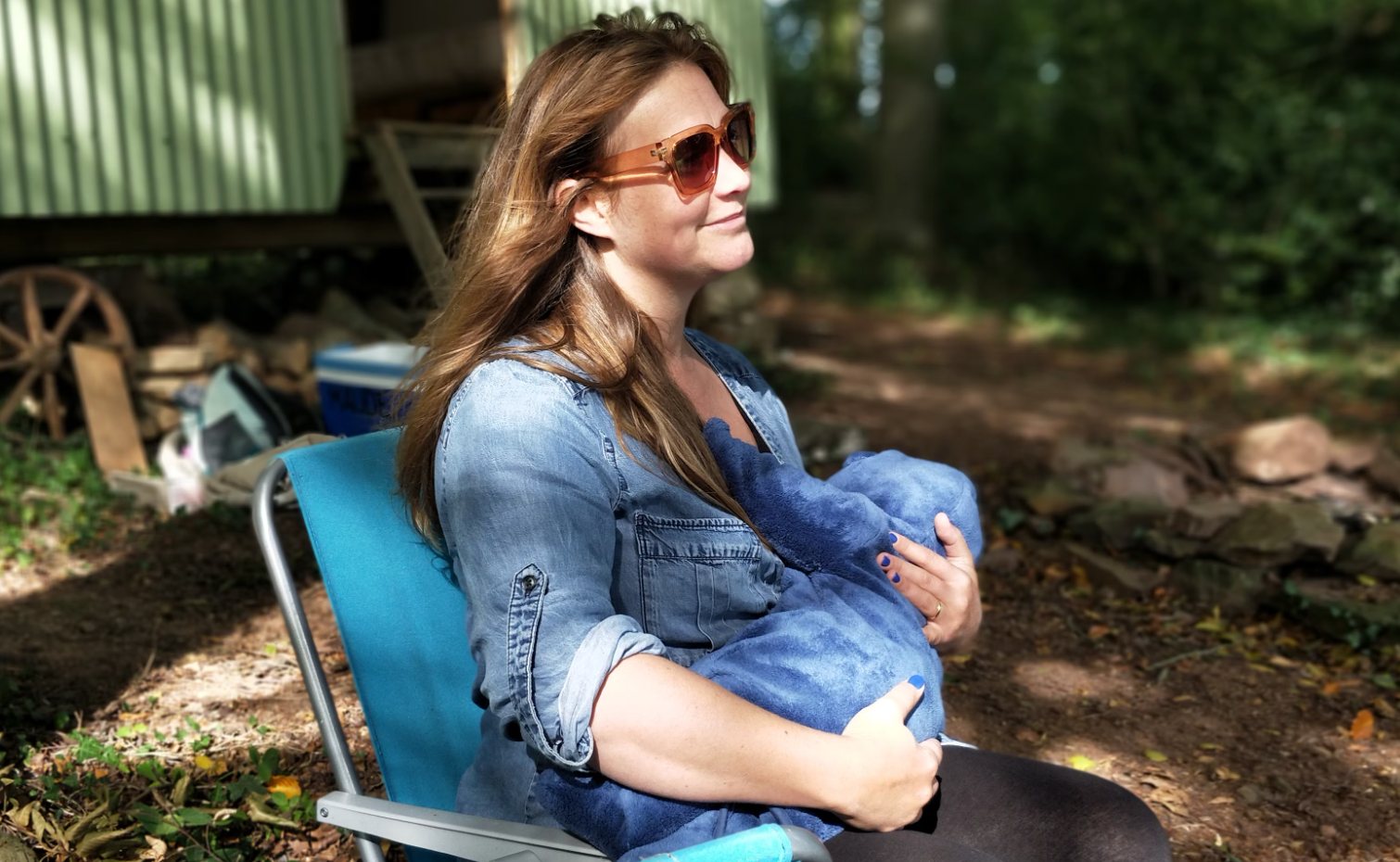How Breastfeeding Affects Your Menstrual Cycle: What to Expect

After giving birth, many new parents wonder when their period will return and how breastfeeding will affect their menstrual cycle. The short answer? It can vary greatly from person to person. For some, breastfeeding can delay the return of periods for months, while others may see their menstrual cycle return sooner. This blog will walk you through how breastfeeding impacts your menstrual cycle, what changes to expect, and how to manage it with the help of period products like period pants.
Let’s explore how breastfeeding and periods interact and what you should look out for during this exciting, yet sometimes unpredictable, postpartum period.
Hormonal Changes During Breastfeeding
When you breastfeed, your body produces prolactin, a hormone responsible for milk production. Prolactin helps your body make breast milk but also plays a big role in keeping your period at bay. High levels of prolactin suppress the reproductive hormones that control ovulation, which is why many breastfeeding people experience a delay in the return of their menstrual cycle.
This natural process is called lactational amenorrhea, and it can last for months, sometimes even longer than a year. As long as you are breastfeeding regularly, particularly exclusively, prolactin levels stay high and can prevent ovulation and menstruation.
What Is Lactational Amenorrhea?
Lactational Amenorrhea is a natural way of delaying the return of your period while breastfeeding. It's your body’s way of spacing out pregnancies, as breastfeeding can act as a natural contraceptive. According to the NHS, the lactational amenorrhea method (LAM) can be 98% effective in preventing pregnancy in the first six months postpartum, but only if you’re exclusively breastfeeding, without supplementing with formula or food.
This means:
- You breastfeed frequently, day and night.
- You have not introduced any other food or formula to your baby.
- Your baby is younger than six months.
Once you start weaning or supplementing with formula, or if your baby sleeps through the night, your prolactin levels decrease, and your periods are more likely to return.
When Will My Period Return After Breastfeeding?
Many people wonder, "When will I get my 1st period after birth while breastfeeding?" There is no one-size-fits-all answer, as it depends on various factors, such as how often you breastfeed and your body’s hormonal balance.
For some, periods return within a few months after giving birth, even while breastfeeding. For others, it might take six months, a year, or longer. According to La Leche League, most people will see their periods return after they start introducing solids to their baby’s diet or after they significantly reduce breastfeeding.
What to Expect with Your First Period After Breastfeeding
When your period does return, you might notice it feels different than it did before you had your baby. Here’s what to expect when you get your 1st period after breastfeeding:
Irregular Cycles
It’s normal for your first few periods to be irregular. Your body is adjusting to postpartum life and changes in hormone levels, so your cycle might not be as consistent as it was before.
Anovulatory Cycles
Your first period while breastfeeding may be an anovulatory cycle, meaning you get a period without ovulating. This is normal and happens because your hormone levels are still adjusting, and ovulation might not occur every cycle right away.
Heavier or Lighter Flow
Some people find that their periods are heavier after birth, while others experience lighter periods. This can be due to how your uterine lining builds up or sheds. It’s perfectly normal to have some changes in your flow during this time.
Changes in Duration
Your period may last longer or be shorter than what you’re used to. This is again linked to hormonal fluctuations and how your body is recovering from pregnancy and childbirth.
Signs to Look Out for and When to Contact a Doctor
While it’s normal for your menstrual cycle to be irregular or feel different after childbirth, there are a few signs that might indicate something more serious. Contact your healthcare provider if:
- Your periods are very heavy, and you’re soaking through pads or tampons every hour.
- You experience severe cramping that isn’t relieved by over-the-counter pain relief.
- You notice large clots during your period.
- You have irregular bleeding or spotting that doesn’t seem related to your period.
These could be signs of a postpartum condition, such as uterine fibroids or hormonal imbalances. If you're concerned, it’s always best to get checked out by a doctor.
How Breastfeeding Affects Your Menstrual Cycle
Breastfeeding can change the entire rhythm of your menstrual cycle. It’s not just about delaying your period—it can also impact the pattern of your cycle even after your periods return. Here’s how:
1. Longer Time Between Cycles
Even once your period comes back, breastfeeding can cause longer intervals between periods. This is because your prolactin levels might still be elevated enough to disrupt your normal ovulation pattern.
2. Irregular Ovulation
You may also experience irregular ovulation cycles, where ovulation doesn’t occur every month. This is especially common while you’re still breastfeeding frequently, as prolactin can inhibit the hormones needed for regular ovulation.
How Your Period Affects Breastfeeding
Your period can also affect your breastfeeding journey in some surprising ways:
Changes in Milk Supply
Some people notice a temporary dip in their milk supply around the time their period returns. This is due to the shift in hormone levels. According to the International Breastfeeding Journal, some people experience a slight drop in supply in the days leading up to their period, but it typically rebounds after menstruation ends.
Taste of Breast Milk
You may notice that your baby becomes fussier at the breast around the time of your period. This could be because the taste of your milk changes slightly due to hormone shifts. Don’t worry—this is temporary, and most babies adjust quickly.
Nipple Sensitivity
Some people experience increased nipple sensitivity while breastfeeding during their period. This can make nursing more uncomfortable, but it’s a normal part of hormonal changes.
For more information on how your period affects breastfeeding, visit the Breastfeeding Network.
Managing Your First Period After Breastfeeding with Period Pants
When your period does return, having comfortable and reliable period products is key. That’s where period underwear comes in. Period pants are a perfect solution for new parents who want a stress-free and comfortable way to manage their flow.
fluxies period pants are:
- Super absorbent, handling everything from light spotting to heavy flow days.
- Eco-friendly, offering a reusable option that reduces waste compared to disposable pads or tampons.
- Comfortable, designed to fit snugly and stay in place, so you can chase after your little one without worry.
Check out our collection to find the perfect pair of period pants for your postpartum needs. With period underwear, you can manage your first periods after birth with confidence and comfort.
Breastfeeding can have a big impact on your menstrual cycle, from delaying the return of your period to changing your cycle pattern altogether. While it’s normal for periods to be irregular and feel different after birth, being prepared can help ease some of the uncertainty.
Remember, it might take time for your body to adjust after having a baby, and everyone’s experience is different. If you have any concerns, don’t hesitate to reach out to your healthcare provider for advice.



